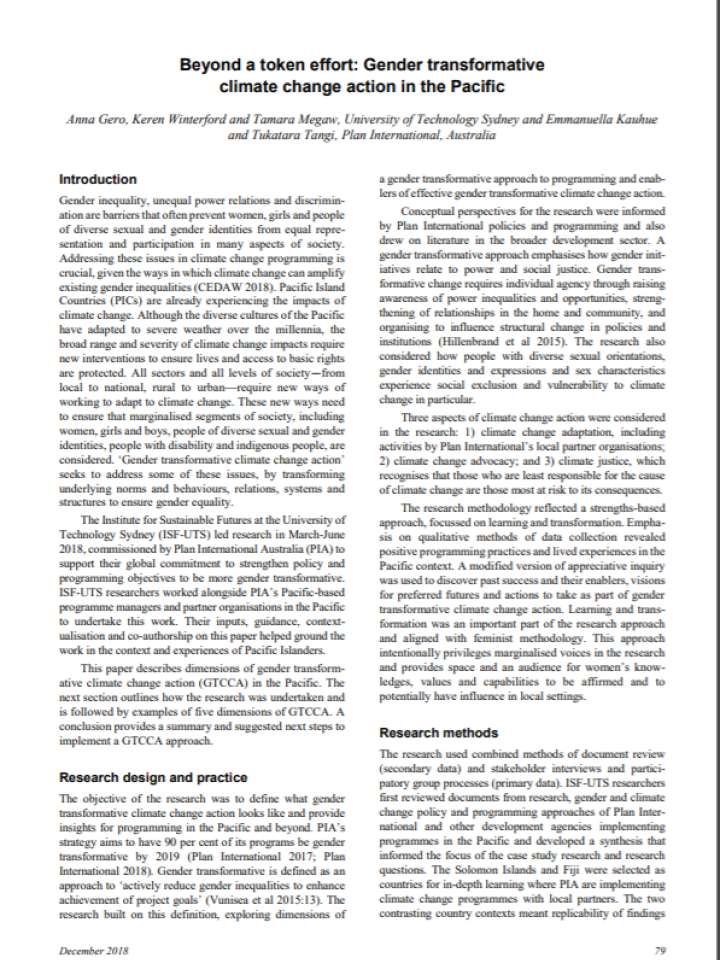Beyond a token effort: gender transformative climate change action in the pacific
Gender inequality, unequal power relations and discrimination are barriers that often prevent women, girls and people of diverse sexual and gender identities from equal representation and participation in many aspects of society. Addressing these issues in climate change programming is crucial, given the ways in which climate change can amplify existing gender inequalities (CEDAW 2018). Pacific Island Countries (PICs) are already experiencing the impacts of climate change. Although the diverse cultures of the Pacific have adapted to severe weather over the millennia, the broad range and severity of climate change impacts require new interventions to ensure lives and access to basic rights are protected. All sectors and all levels of society—from local to national, rural to urban—require new ways of working to adapt to climate change. These new ways need to ensure that marginalised segments of society, including women, girls and boys, people of diverse sexual and gender identities, people with disability and indigenous people, are considered. ‘Gender transformative climate change action’ seeks to address some of these issues, by transforming underlying norms and behaviours, relations, systems and structures to ensure gender equality.
Explore further
